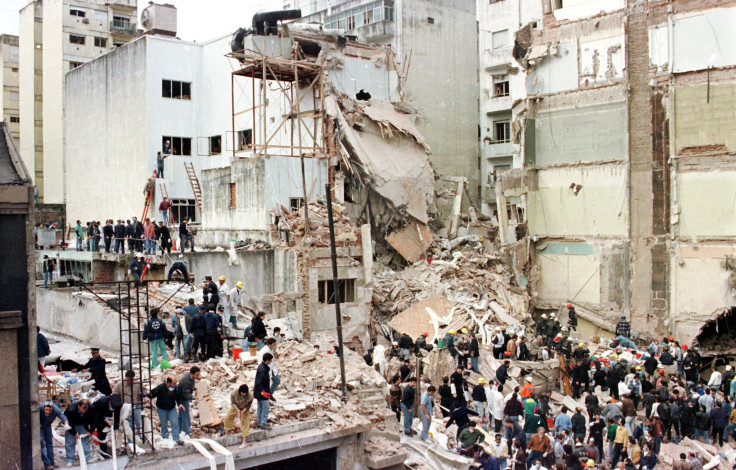
Dozens of Jewish demonstrators gathered for a minute of silence at the Sao Paulo Museum of Art, ahead of the Argentina-Iran World Cup game, according to AP. The protest came after nearly 20 years of a deadly bombing attack to a Jewish community center in Buenos Aires that left 85 dead and three hundred injured. Argentine prosecutors accuse Iran of helping coordinate and plan the attack through a Hezbollah cell in the region, but Iran vehemently denies any involvement.
Demonstrators held banners reading slogans such as "20 years without justice" and "a red card for lack of justice." Dov Bigio, the organizer, said the match offered an opportunity to “express our need for justice.” He added that similar protests were being held in Rio de Janeiro and in front of the game itself in Belo Horizonte. This game marks the first time that Argentina and Iran face each other after the July 18, 1994 attack, Argentina’s deadliest bombing ever.
The attack was aimed at the Asociación Mutual Israelita Argentina (AMIA; Argentine Israelite Mutual Association) building. "I stood there with boyfriends, husbands, wives, girlfriends, all of us digging and hoping to find a loved one,” Diego Goldman, a witness of the bombing, told CNN. "I could see people trapped but I knew if I took a wrong step, more rubble could fall upon them.” Goldman continued, "Some people just couldn't handle it -- the smell was enough to turn a lot of volunteers away. So many people died ... so many."
Argentina is home to a Jewish community of 250,000, the largest in Latin America and sixth in the world outside Israel. Over the years, this case has been marked by incompetence and accusations of cover-ups. On October 25, 2006, Argentine prosecutors Alberto Nisman and Marcelo Martínez Burgos formally accused the government of Iran of directing the bombing, and the Hezbollah militia of carrying it out. According to the prosecution's claims in 2006, Argentina had been targeted by Iran after Buenos Aires' decision to suspend a nuclear technology transfer contract to Tehran.
This however, has been disputed, because this contract was never terminated, and Iran and Argentina were negotiating on restoration of full cooperation on all agreements from early 1992 until 1994, when the bombing occurred. According to CNN, in February 2013, Argentine lawmakers agreed to work with Iran to investigate the attack. The move was struck down by the Federal Court, which ruled it unconstitutional, and a government appeal will now be heard in the country's Supreme Court.
© 2025 Latin Times. All rights reserved. Do not reproduce without permission.





